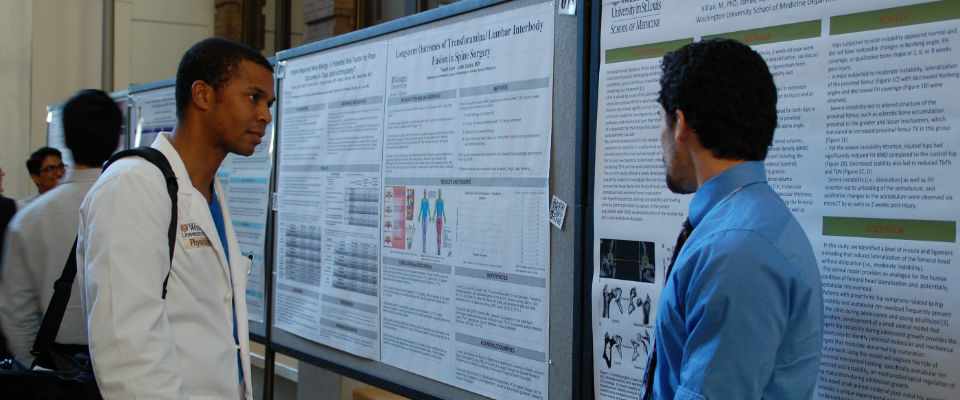
Use the dropdown below to filter programs by affiliation.
K12 Career Development Award Program in Substance Use and Substance Use Disorder
The K12 Career Development Program in Substance Use and Substance Use Disorder at WashU Medicine provides clinician scholars financial support and coursework to focus on research in substance use and substance use disorder.
KL2 Career Development Awards
The KL2 Career Development Awards Program at WashU Medicine provides high-quality, multidisciplinary training in clinical and translational research to promote the career development of future clinical investigators. This program provides financial support and benefits that allow scholars to focus on mentored, multidisciplinary research, supplemented by applicable coursework.
Paul Calabresi K12 Career Development Award Program in Clinical Oncology
The goal of the K12 Paul Calabresi Career Development Award for Clinical Oncology is to train a new generation of highly skilled investigators with specialized expertise who will be well prepared to lead cancer research. The K12 Clinical Oncology program supports the development of postdoctoral scholars and junior faculty through patient oriented cancer research training, curricula, and mentored projects.